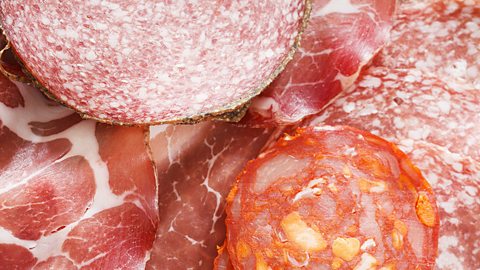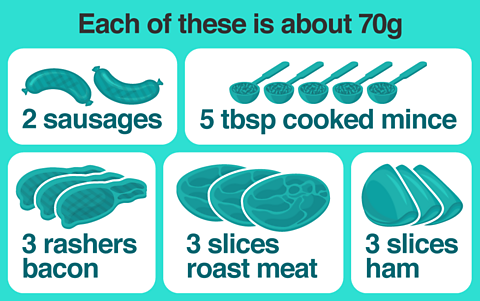How much of a cancer risk is processed meat?

Bacon and other processed meats have joined a list of known carcinogens alongside tobacco, alcohol, asbestos and plutonium. But just how risky is it?
The list of carcinogens is part of âgroup 1â. This is compiled by the International Agency for Research on Cancer (IARC). The IARC, part of the World Health Organisation (WHO), made the addition of bacon and processed meats in October 2015, based on over 800 different studies of cancer in humans.
Not everything in group 1 carries the same level of risk. For example, sunlight is also in group 1, as it is a proven cause of skin cancer. But the risk it poses varies according to your behaviour, circumstance and exposure to the sun. However, you might be surprised to learn the risks from eating processed and red meat arenât negligible.
The WHO says eating 50g of processed meat a day increases your risk of developing bowel cancer from 6% to 7%. That means the risk has actually increased significantly. So eating processed meat every day makes it more likely you could develop bowel cancer.

What counts as processed meat?
The WHO definition of processed meat consists of bacon, sausages, salami, hotdogs, ham, corned beef and any meat or poultry that has been processed to improve preservation. This could be by salting, curing, smoking or fermenting it.

How does it compare with tobacco?
According to Cancer Research UK, 21% of bowel cancers and 3% of all cancers in the UK are caused by eating red or processed meats. By comparison, they report that 86% of lung cancers and 19% of all cancers in the UK are caused by tobacco.
Does all red meat carry the same risk?
According to the IARC, there is evidence, though less conclusive, that eating unprocessed red meat, including beef, veal, pork, lamb, mutton and goat, carries a similar risk of bowel cancer. There is also evidence of an increased risk of pancreatic and prostate cancers for people eating red and processed meats.
The UK government recommends that adults eat no more than 70g (cooked weight) of red and processed meat per day. This balances the nutritional benefits against the risks. It is an average, so if you eat more on one day, you can eat less the next to balance it out. However, this does not mean you can eat 70g meat per day without risk.

Other health considerations
There are other health concerns connected with eating meat, although they are not factored into the 70g recommendation. Eating too much saturated fat raises blood cholesterol and raises the risk of heart disease. Processed meats are also high in salt, and too much salt is also linked to heart disease and high blood pressure.